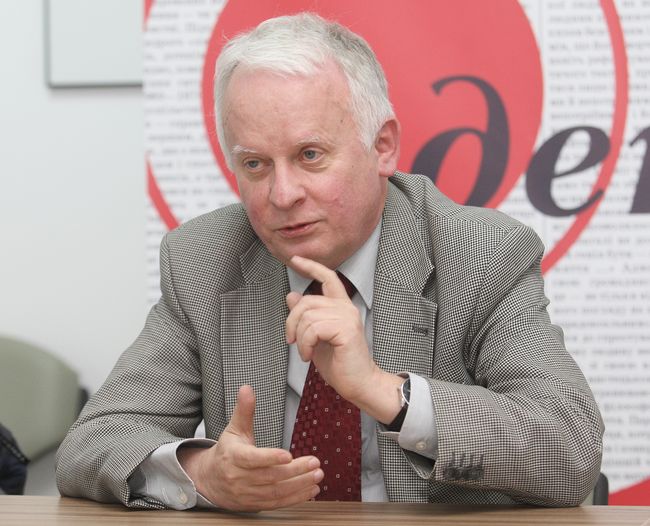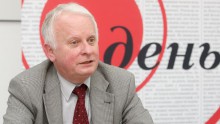Poland’s former ambassador to Ukraine Jacek Kluczkowski, having completed his mission in our country in 2010, spent nearly five years representing his state in Kazakhstan. Now he coordinates Ukrainian issues at the Institute for East European Studies, a think-tank and host of the Krynica-Zdroj. So, Kluczkowski remains connected with Ukraine.
In a special interview to The Day Kluczkowski shared his impressions of Kazakhstan and the peculiarities of power changing hands in Poland.
“It will be a more active policy without any illusions concerning our eastern neighbor. On the part of the new government we will see more geopolitical vision of the processes unfolding in Europe. It has to be taken into account that when it comes to regional cooperation, President Andrzej Duda emphasizes the line from the Baltic to the Adriatic, although Ukraine and Belarus lie close. I think that geopolitical and regional elements will be more accentuated in our Polish vision now,” emphasized the former ambassador.
As we know, editor-in-chief of Poland’s largest newspaper Gazeta Wyborcza Adam Michnik predicted “dark times for Poland” after the first round of the presidential election. Moreover, a year before the election he prophesied that Komorowski could only lose in the polls if he rode over a pregnant woman on the sidewalk.
“I respect Michnik, he has a right to his own assessments. Our people voted both for the president and the government from Law and Justice. This party has a unique, in Poland’s contemporary history, opportunity to create a one-party government instead of a coalition. So, this means a solid mandate from Poles,” said Kluczkowski expounding Michnik’s remark about the “dark times” for Poland.
“Can a voter be fair at all? They have their own dreams, views, and the right to vote as they please. And they always pay a price for their choice. True, Poland has avoided crises in its economy. It is the result of responsible politics, including the effort of all the reformers starting from 1989. But if Poles used to look east and compare their living standards with that of Ukraine or Belarus, now they will not do that anymore. Germany is our neighbor too, and people live better there, and there is nothing to be done with it. Maybe it is unfair, because we know that objectively Poland will only catch up with Germany’s current level in 40 years. Yet people have the right to being unfair, they have the right to dream of a better life. And they have a right to the rotation of government. It seems to me that the Civic Platform underestimated this. Meanwhile, Poles are protesters. Governments in fact never lasted two terms until recently.”

Kluczkowski considers the Minsk format imperfect. According to him, President Duda’s initiative to join the negotiations means that Poland is trying to involve the EU and US to this process, in order to help find a solution to the conflict in Donbas.
“We believe that Ukraine’s neighbors, including the Baltic States and those CIS neighbors that wish peace, stability, and progress for Ukraine, should also take part in this process. This would give Germany and America more room for maneuver. It is not a matter of finding a special place for Poland,” said Kluczkowski.
He is not too certain that Europe will unconditionally back Ukraine under any circumstances. “Europe will probably focus its policy on securing the armistice in the east of Ukraine and supporting European-style reforms in Ukraine in order to separate business and power, so that policy might become more transparent, so that we could see real war on corruption, and not just empty declarations.”
Summarizing his mission in Central Asia, Kluczkowski says that Ukraine and Kazakhstan chose for different paths. In his words, all observers agree that Kazakhstan has opted for building up a robust economy, and if in 1991 this country was much poorer than Ukraine, its leader’s smart policy allowed it to surpass Ukraine in terms of GDP (not only per capita, but also in absolute terms).
“Nazarbayev emphasized that had Ukraine paid attention to its economy first and foremost, and not to politics, it would be one of the most powerful countries in Europe or on the post-Soviet territory. Yet this could be a priority for a non-European style state, which has no civic society. On the contrary, Ukrainians inherited the Cossacks’ sense of freedom. Ukrainians have already proved that they want to live in a free country. Meanwhile, for Kazakhs the most important thing is the consolidation of power and economy together, within one development strategy,” explained the diplomat.
“It reminds me of Poland under Edward Gierek, first secretary of the Polish United Workers’ Party, when we opened up to Western technology. That era gave a certain freedom to Poles, although its economic outcome was negative.”
Global media have long been speculating about the Kazakh leader’s possible successor. In Kluczkowski’s opinion, President Nazarbayev would like his successor to preserve all Kazakhstan’s gains, first and foremost in economy, so that the country kept walking the path of modernization and develop its strategic cooperation with Russia while keeping the door for the West open. “My personal point of view is that Nazarbayev will be succeeded by collective leadership. At any rate, this is Nazarbayev’s goal: to pass the power on to a group. Nazarbayev’s ambition is to become Kazakhstan’s Ataturk or Deng Xiaoping. There is a team, although no plans to allow opposition, of course,” summarized Kluczkowski.








